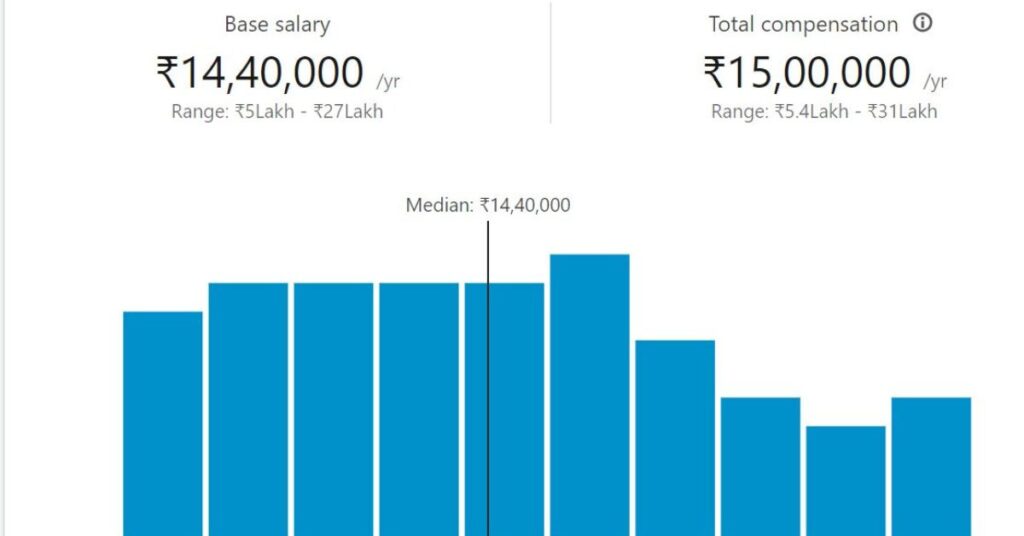Transitioning from a software engineer to a product manager can be a fulfilling career shift, but it requires thoughtful planning, acquiring new skills, and the right mindset. This shift is becoming more common as tech professionals look for broader responsibilities that impact the entire product lifecycle.
To switch from software engineer to product manager, take courses, connect with product managers, and work on side projects. Update your resume and apply for product management jobs.
In this guide, we’ll explore the step-by-step process to make the switch and address the skills, challenges, and opportunities that come with it.
Why Transition from Software Engineer to Product Manager?
Many software engineers consider transitioning into product management for several reasons:
- Wider Business Impact: As a product manager, you’re no longer focused solely on the technical aspects of product development. Instead, you shape the vision of the product, guide its roadmap, and work closely with stakeholders, including marketing, sales, and support teams.
- Greater Career Flexibility: Product management offers the potential to work in different sectors, industries, and across various types of projects, giving you broader career opportunities.
- Problem-Solving at a Higher Level: Engineers are great problem-solvers, and in product management, you solve customer problems, business needs, and market demands.
What Does a Product Manager Do?

A product manager is responsible for the vision, strategy, and development of a product. They act as the bridge between different teams such as engineering, marketing, and sales, ensuring that the product aligns with the company’s goals and meets customer needs.
Roles and Responsibilities:
1. Product Strategy:
Define a clear product vision that aligns with the company’s long-term goals. Develop a roadmap that outlines the key features and milestones to guide the product’s development.
2. Market Research:
Conduct thorough research to understand customer needs and expectations. Analyze market trends and competitors to identify opportunities and challenges.
3. Collaboration:

Work closely with engineering, design, and marketing teams to ensure smooth product development. Facilitate communication across departments to keep everyone aligned with the product vision.
4. Prioritization:
Make informed decisions on which features to prioritize based on their potential business value. Balance customer needs with technical feasibility to deliver impactful features.
5. Stakeholder Communication:
Serve as the main liaison between internal teams and external stakeholders. Keep stakeholders updated on product progress, challenges, and successes to ensure transparency.
6. Product Lifecycle Management:
Oversee the product from its initial concept through to launch and post-launch improvements. Manage the product’s evolution by continuously gathering feedback and making necessary updates.
Salary of Product Manager and Software Engineer in India:
The salary of product managers and software engineers varies depending on experience, company, and location. Here’s a general comparison of the two roles in India:

- Product Manager: The average salary is around INR 15-25 lakhs per year for mid-level professionals. Senior PMs can earn upwards of INR 35 lakhs per year.
- Software Engineer: The average salary for a mid-level software engineer is around INR 8-15 lakhs per year. Senior engineers or architects can earn upwards of INR 25 lakhs per year.
Skills Required to Become a Product Manager:
To successfully transition into a product management role, you’ll need to build a diverse skill set that goes beyond technical expertise.
1. Key Skills:
- Business Acumen: Understanding how your product aligns with the company’s overall goals.
- User-Centric Mindset: Focus on the needs of the end-users and ensure the product solves real problems.
- Communication Skills: Ability to clearly articulate the product vision to different teams and stakeholders.
- Leadership: Leading cross-functional teams without direct authority requires strong leadership and negotiation skills.
- Analytical Skills: Use data and market research to make informed product decisions.
- Time Management and Prioritization: Managing deadlines and ensuring that the most critical features are prioritized.
How to Transition from Software Engineer to Product Manager?
Moving from software engineering to product management requires a few critical steps. Here’s how to make the transition smoother:

1. Get a Certificate
While it’s not mandatory to have a certification to become a product manager, earning one can greatly enhance your credibility and provide you with structured learning. Various institutions offer online product management courses, including edX’s Product Management Certification, Coursera’s Product Management Specialization, and Product School’s Certified Product Manager course.
2. Learn More About Product Management
To dive deeper into the role of a product manager, it’s essential to invest time in learning. Read books, listen to podcasts, and take online courses to broaden your understanding. Some highly recommended books include Inspired: How to Create Products Customers Love by Marty Cagan, Lean Product by Eric Ries, and The Lean Startup by Eric Ries.
3. Build Connections with Product Managers

Networking is key to understanding the role better. Join product management communities, attend conferences, and connect with current product managers on platforms like LinkedIn. Ask them about their day-to-day challenges, responsibilities, and career paths.
4. Explore the Idea of a Side Project
One of the best ways to gain product management experience is to work on a side project. This could be developing a small app, a website, or a feature that you manage end-to-end. By doing so, you’ll get first-hand experience in product development, user feedback, and project management.
5. Update Your Resume and Apply for the Job
Once you’ve gained enough knowledge and experience, tailor your resume to highlight your technical skills along with your newly acquired product management insights. Focus on experiences where you led projects, worked cross-functionally, or influenced decision-making.
Common Challenges in the Transition:
1. Balancing Technical and Business Focus

As a software engineer, you’re used to diving deep into technical details, but as a product manager, your focus needs to be broader. You’ll need to step back from the technical aspects at times to focus on the business side.
2. Gaining Stakeholder Buy-In
As a product manager, you’ll often need to influence others without direct authority. Convincing stakeholders, including executives, to buy into your product vision can be challenging.
3. Handling Ambiguity
Unlike engineering, where problems often have concrete solutions, product management is about navigating ambiguity. You may have to make decisions with limited data, requiring a balance of intuition and analysis.
FAQ’s
1. Can I transition from software engineer to product manager without an MBA?
Yes, many product managers transition from technical roles without an MBA. Hands-on experience, certifications, and side projects are often sufficient.
2. Do product managers need to know how to code?
While coding isn’t necessary, understanding technical concepts helps when working with engineering teams and making product decisions.
3. How long does it take to transition into a product management role?
The time frame varies. It could take anywhere from a few months to a couple of years, depending on your experience, networking, and learning pace.
4. Is product management stressful?
Product management can be demanding due to the high level of responsibility, cross-functional collaboration, and tight deadlines. However, it can also be highly rewarding.
5. Do software engineers make better product managers?
Engineers have a technical understanding that can be beneficial in product management, but other skills like communication, leadership, and market research are also crucial.
6. What industries have the highest demand for product managers?
Product managers are in demand in industries such as tech, e-commerce, fintech, and healthcare.
7. What’s the typical career path for a product manager?
The typical path includes roles such as associate product manager, product manager, senior product manager, and eventually product director or VP of Product.
8. Is transitioning to product management worth it?
If you’re interested in a more strategic role that involves business decisions, leadership, and customer interaction, product management can be a highly rewarding career path.
Closing Remarks:
Transitioning from software engineer to product manager is not an easy path, but it is achievable with the right approach. By building on your technical foundation and acquiring new business, communication, and leadership skills, you can thrive in this new role.
Always keep the customer at the center of your decisions, and remember that a successful product manager is both strategic and empathetic.

